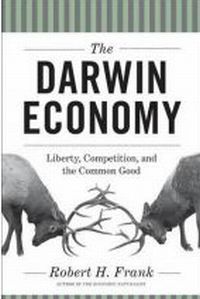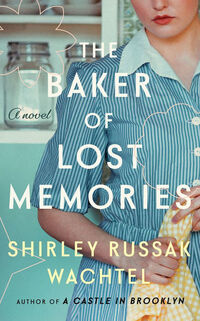

Purchase
Liberty, Competition, and the Common Good
Princeton University Press
September 2011
On Sale: September 4, 2011
256 pages
ISBN: 0691153191
EAN: 9780691153193
Kindle: B008W4ASGC
Hardcover / e-Book
Add to Wish List
Non-Fiction
Who was the greater economist--Adam Smith or Charles Darwin?
The question seems absurd. Darwin, after all, was a
naturalist, not an economist. But Robert Frank, New York
Times economics columnist and best-selling author of The
Economic Naturalist, predicts that within the next century
Darwin will unseat Smith as the intellectual founder of
economics. The reason, Frank argues, is that Darwin's
understanding of competition describes economic reality far
more accurately than Smith's. And the consequences of this
fact are profound. Indeed, the failure to recognize that we
live in Darwin's world rather than Smith's is putting us all
at risk by preventing us from seeing that competition alone
will not solve our problems. Smith's theory of the invisible hand, which says that
competition channels self-interest for the common good, is
probably the most widely cited argument today in favor of
unbridled competition--and against regulation, taxation, and
even government itself. But what if Smith's idea was almost
an exception to the general rule of competition? That's what
Frank argues, resting his case on Darwin's insight that
individual and group interests often diverge sharply. Far
from creating a perfect world, economic competition often
leads to "arms races," encouraging behaviors that not only
cause enormous harm to the group but also provide no lasting
advantages for individuals, since any gains tend to be
relative and mutually offsetting. The good news is that we have the ability to tame the Darwin
economy. The best solution is not to prohibit harmful
behaviors but to tax them. By doing so, we could make the
economic pie larger, eliminate government debt, and provide
better public services, all without requiring painful
sacrifices from anyone. That's a bold claim, Frank concedes,
but it follows directly from logic and evidence that most
people already accept.
No awards found for this book.
Comments
No comments posted.
Registered users may leave comments.
Log in or register now!
| 


 © 2003-2025 off-the-edge.net
all rights reserved Privacy Policy
© 2003-2025 off-the-edge.net
all rights reserved Privacy Policy